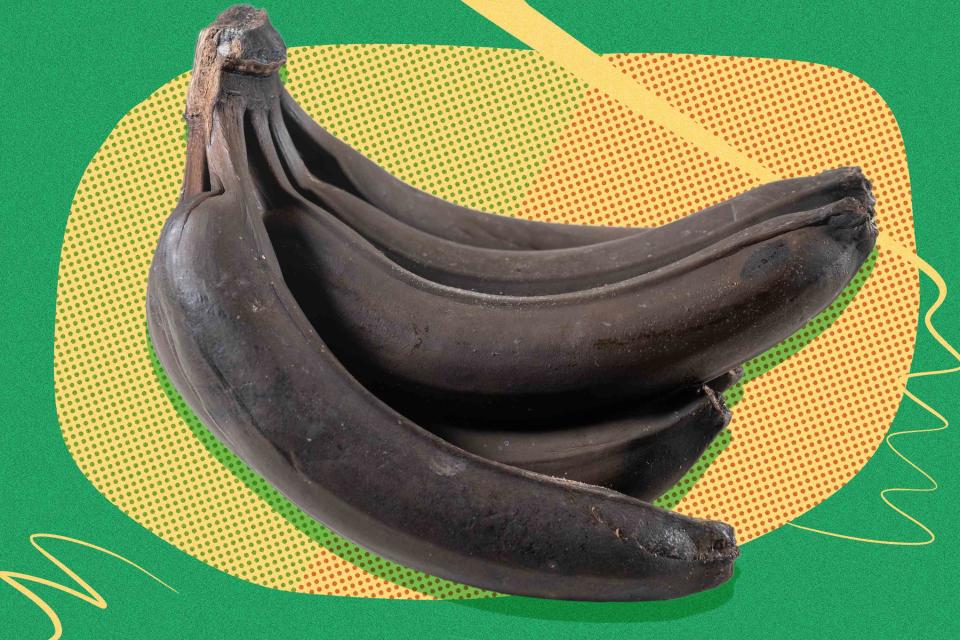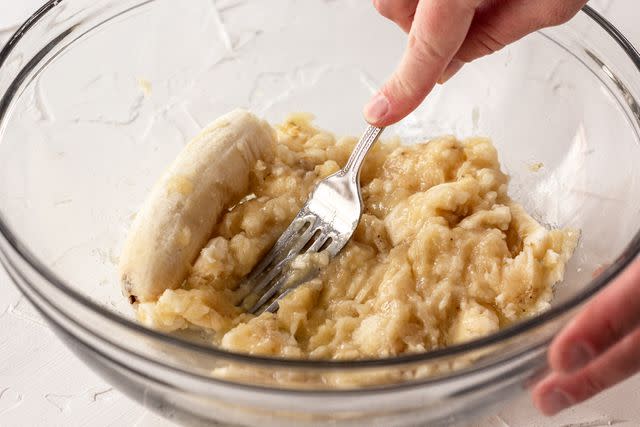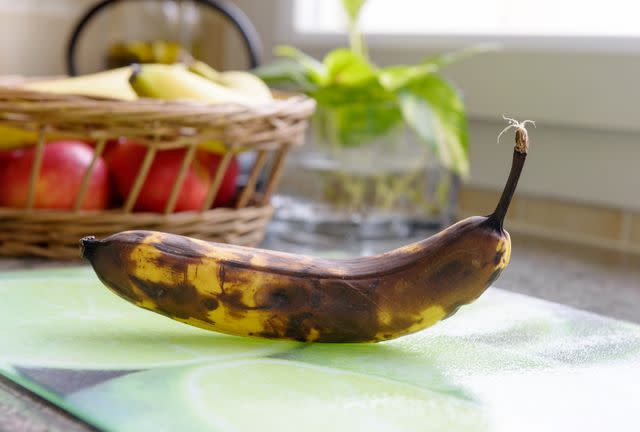The 3 Signs Your Bananas Are Too Ripe to Safely Eat
- Oops!Something went wrong.Please try again later.
Should you turn those super-overripe bananas into a sweet treat or chuck them in the trash? Here's what the experts say.

Simply Recipes / Sarah Crowder
It seems that just about every recipe for banana bread calls for very ripe bananas. Ditto for banana cookies, banana pancakes, banana muffins, banana smoothies, and many other delicious banana recipes—the terms "very ripe" and "overripe" come up again and again.
As bananas ripen, they get sweeter and more flavorful as their starches turn to sugar, which makes them tastier to eat out of hand and great for sweet recipes like banana bread. They are perfect for baking when speckled with brown all over and have a strong fruity fragrance. Bananas also get softer as they ripen, and their mashability makes them ideal for treats and creamy smoothies.
But just how ripe are we talking about here? Should you be using those completely black bananas on your counter or is it safer to toss them in the compost bin instead? To find out, I checked with the experts at the U.S. Food and Drug Administration (FDA), as well as James E. Rogers, Ph.D., the Director of Food Safety Research and Testing for Consumer Reports.

Simply Recipes / Kelly Hamilton
Is It Safe to Eat and Cook with Black Bananas?
Good news for Team Ripe Banana: Extremely ripe bananas—even those with a completely black peel—are likely safe to eat. According to a spokesperson for the FDA, "Generally, as long as it is not visibly moldy, it is safe." Rogers concurs, saying he hasn't seen any studies linking foodborne illness to eating extremely ripe bananas.
That said, Rogers states that if your bananas are jet black and mushy, your safest bet is to cook with them rather than eating them out of hand or using them raw in things like smoothies or nice cream.
"The riper the bananas get, the more levels of bacteria could be on them," he says. Those bacteria include spoilage bacteria, which are typically not harmful, but could also be pathogenic bacteria (which can make you sick) picked up during harvesting, processing, or at the grocery store.
Fortunately, heat should kill any pathogenic bacteria that might have been lurking around and multiplying on the bananas as they ripened. "Cooking is a kill step," says Rogers.
Also, note that placing bananas in the fridge or freezer will turn them black. This is natural—bananas don't handle the cold well—and does not mean the bananas are bad. You can still eat them safely as long as they aren't moldy.
3 Signs It’s Time To Throw Away Your Bananas
If you notice any mold on your bananas, it's time to throw them away or toss them in the compost bin. The black skin itself is not mold. Mold on bananas is fuzzy white, gray, or greenish—it looks a lot like mold on bread.
If a banana smells rotten or fermented or is leaking fluid, it's time to say goodbye.
If the fruit inside, not just the peel, is black, that's a sign that your banana is too far gone to safely eat.

Simply Recipes / Getty Images
The Takeaway
Completely black bananas are likely safe to consume as long as there is no visible mold, a rotten smell, or the fruit inside is black. If none of these are true and your bananas are simply black, your best bet is to cook with them rather than eat them raw.
Next time, follow these easy steps to prevent bananas from turning brown too quickly or freeze your bananas before they turn to total mush.

